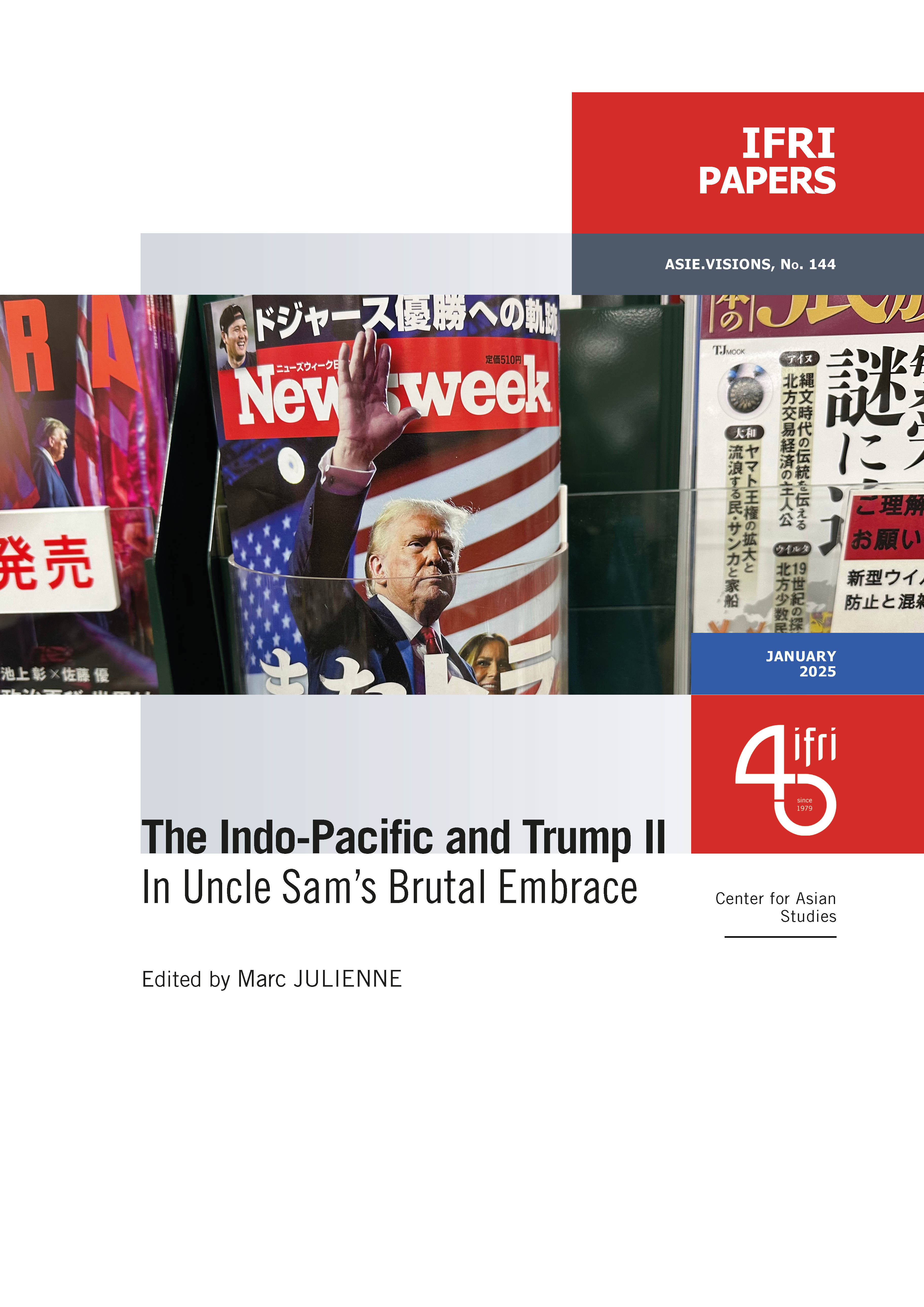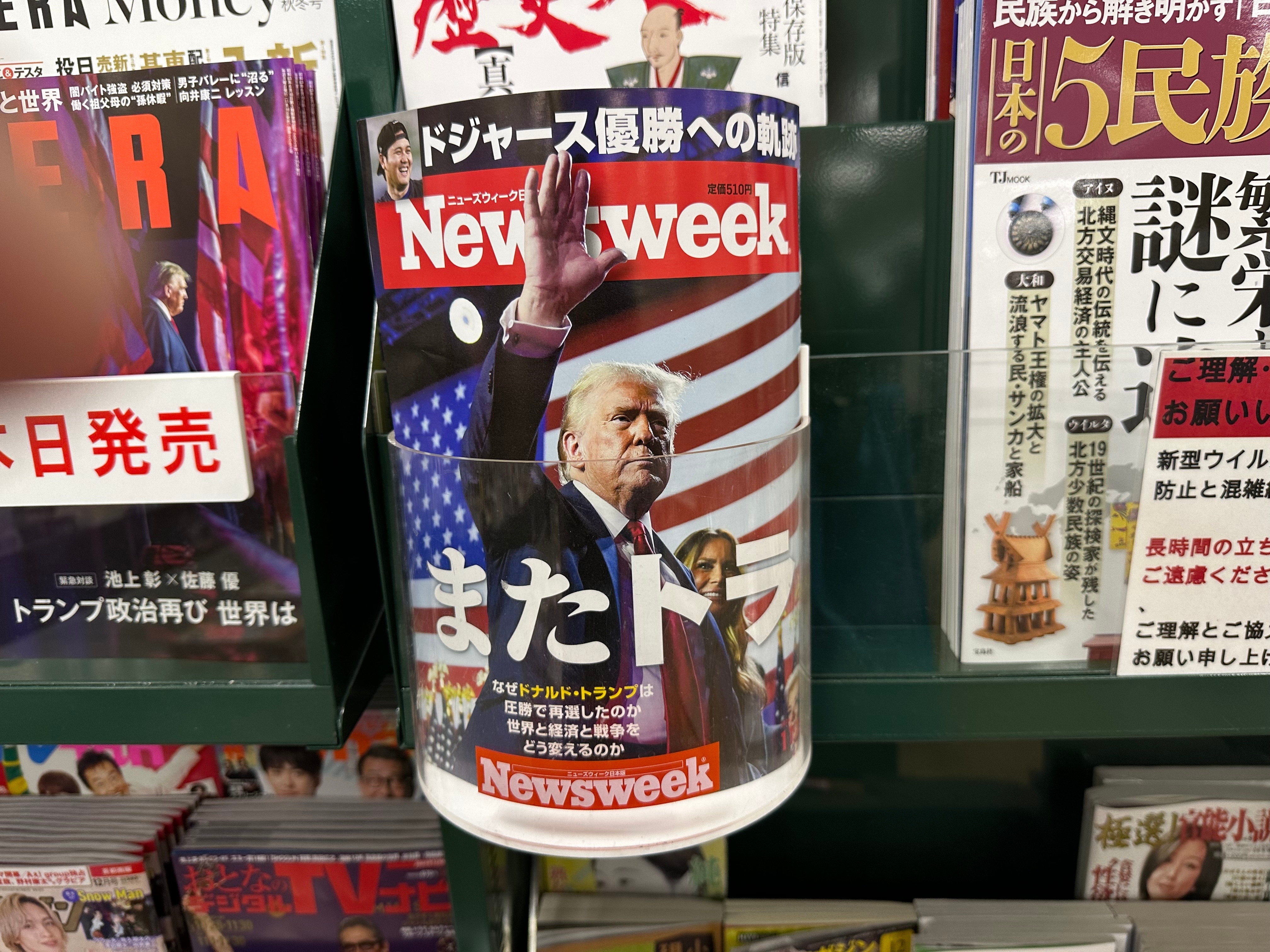The Indo-Pacific and Trump II. In Uncle Sam’s brutal embrace

In this collective analysis, the research team of the Center for Asian Studies presents a synthetic and non-exhaustive assessment of the relations taking shape between the United States under the Trump II administration and some of the main players in the Indo-Pacific.

Under the Trump II administration, US strategy in the Indo-Pacific is likely to be part of a bipartisan continuum, marked by strategic competition with China. The emphasis will be on economic pressure, notably via new trade sanctions, and increased military and technological engagement to counter Beijing. Washington’s allies and partners in the region, such as Taiwan, Japan, South Korea, the Philippines and Australia, will continue to be mobilized to strengthen their posture against China, while pressure to increase their military spending and purchase US armaments will continue.
However, external factors such as political instability in South Korea and rising tensions in the Taiwan Strait could complicate the implementation of this strategy. In Southeast Asia, the delicate balance between economic dependence on China and security provided by the United States remains a major line of tension.
In sum, the Trump II administration is likely to pursue a determined, sometimes brutal, policy of engagement with its partners in the Indo-Pacific, while stepping up pressure on Beijing and adapting its priorities to emerging geopolitical challenges.

Available in:
Themes and regions
ISBN / ISSN
Share
Download the full analysis
This page contains only a summary of our work. If you would like to have access to all the information from our research on the subject, you can download the full version in PDF format.
The Indo-Pacific and Trump II. In Uncle Sam’s brutal embrace
Related centers and programs
Discover our other research centers and programsFind out more
Discover all our analyses
RAMSES 2024. A World to Be Remade
For its 42nd edition, RAMSES 2024 identifies three major challenges for 2024.

France and the Philippines should anchor their maritime partnership
With shared interests in promoting international law and sustainable development, France and the Philippines should strengthen their maritime cooperation in the Indo-Pacific. Through bilateral agreements, expanded joint exercises and the exchange of best practices, both nations can enhance maritime domain awareness, counter security threats and develop blue economy initiatives. This deeper collaboration would reinforce stability and environmental stewardship across the region.

The China-led AIIB, a geopolitical tool?
The establishment of the Asian Infrastructure Investment Bank (AIIB) in 2016, on a Chinese initiative, constituted an attempt to bridge the gap in infrastructure financing in Asia. However, it was also perceived in the West as a potential vehicle for China’s geostrategic agendas, fueling the suspicion that the institution might compete rather than align with existing multilateral development banks (MDBs) and impose its own standards.
Jammu and Kashmir in the Aftermath of August 2019
The abrogation of Article 370, which granted special status to the state of Jammu and Kashmir (J&K), has been on the agenda of the Bharatiya Janata Party (BJP) for many decades.







